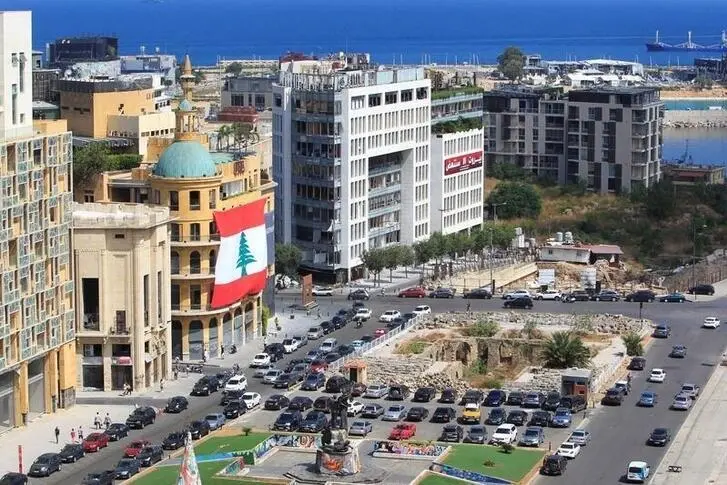PHOTO
Business conditions in Lebanon's private sector declined further in December as heightened political uncertainty and a volatile economic environment was exacerbated by the Israel-Hamas conflict.
The headline purchasing managers’ index fell to 48.4, down from 49.5 in November - anything below 50.0 indicates a decline in business conditions.
Aline Azzi, research analyst at PMI report authors Blominvest Bank, said Lebanon’s PMI score reached its lowest level since January 2023.
“This downturn is attributed to heightened uncertainty among the political class, particularly regarding the potential extension of the army commander's term,” she said.
“Despite containment of regional effects from the Gaza war, Lebanon continues to grapple with a volatile economic environment.
“Notably, the Israel-Hamas Conflict further exacerbated economic challenges, leading to some reversal of gains in the tourism industry during the festive season.”
The report for December said the decline is characterised by rapid contractions in output and new orders, influenced by weakened client purchasing power and a slight drop in new export business; though, on the positive side, there was decline in price pressures.
However, despite a slight improvement in the Future Activity Index, it still reflects a pessimistic business sentiment due to the challenging domestic landscape with employment falling for the first time since May.
There was a further improvement in business sentiment, although firms remained pessimistic towards activity prospects in the year ahead.
The report said a number of panel members remarked on the negative influence of the war between Israel and Hamas, while there was also a drag on sales performances from external sources as new export business fell following November’s rebound, and purchasing activity subsequently fell for a third successive month in December.
Although job losses were only marginal, it was the first time in seven months that a reduction in staffing numbers was recorded.
The drop in workforce capacity coincided with a third successive month of falling backlogs, the report said.
Overall, input costs rose only mildly and at the weakest pace since June. In turn, prices charged by private sector companies in Lebanon rose at a weaker pace, it added.
There was still indicative of pessimistic business sentiment as the domestic political and economic landscape is expected to remain challenging for firms to prosper in.
After the Israel-Hamas conflict broke out on October 7, there were mortar and artillery exchanges in South Lebanon between Hezbollah and Israeli forces.
It was reported Wednesday that a drone strike killed senior Hamas figure Saleh al-Arouri in the Lebanese capital of Beirut.
(Reporting by Imogen Lillywhite; editing by Brinda Darasha)



















